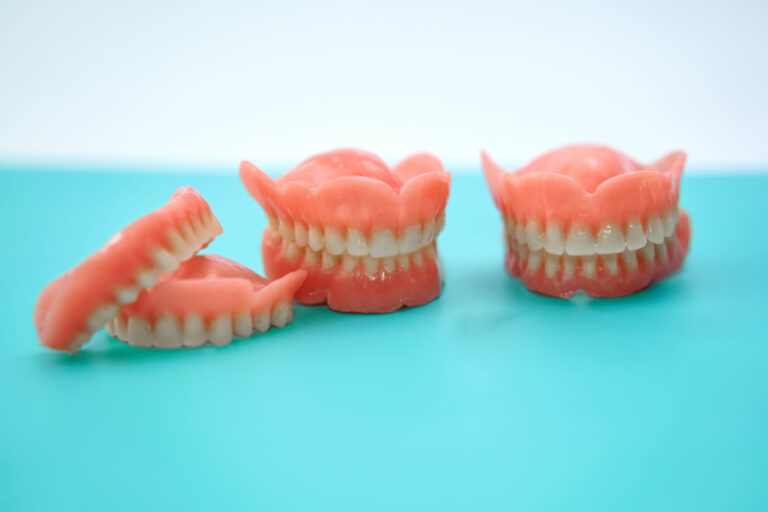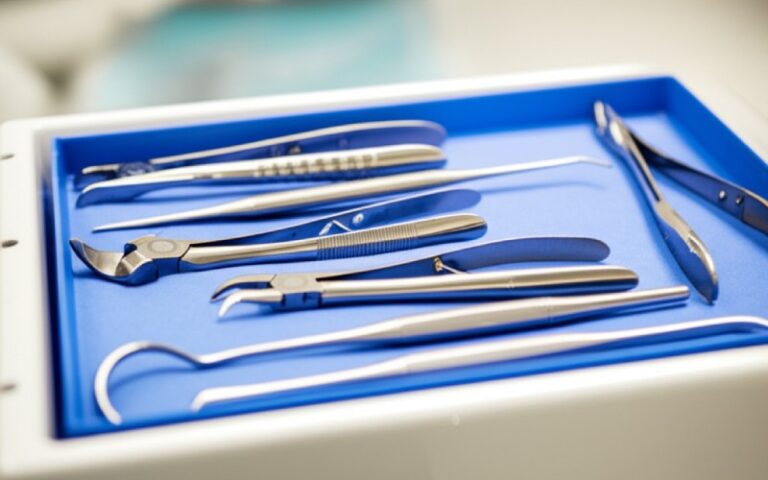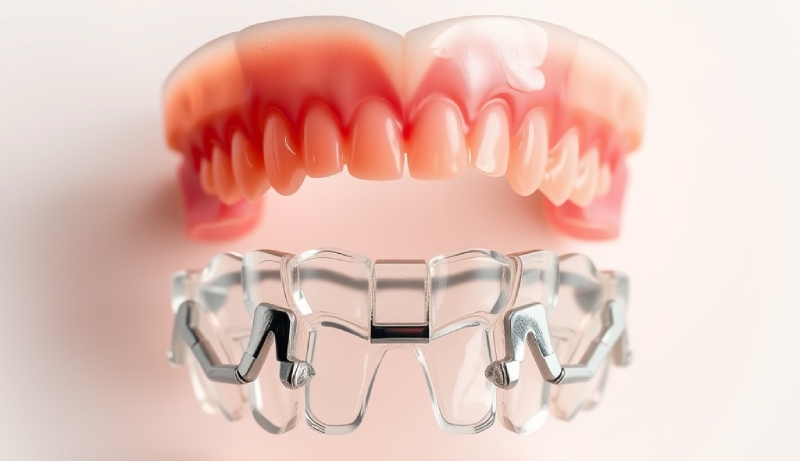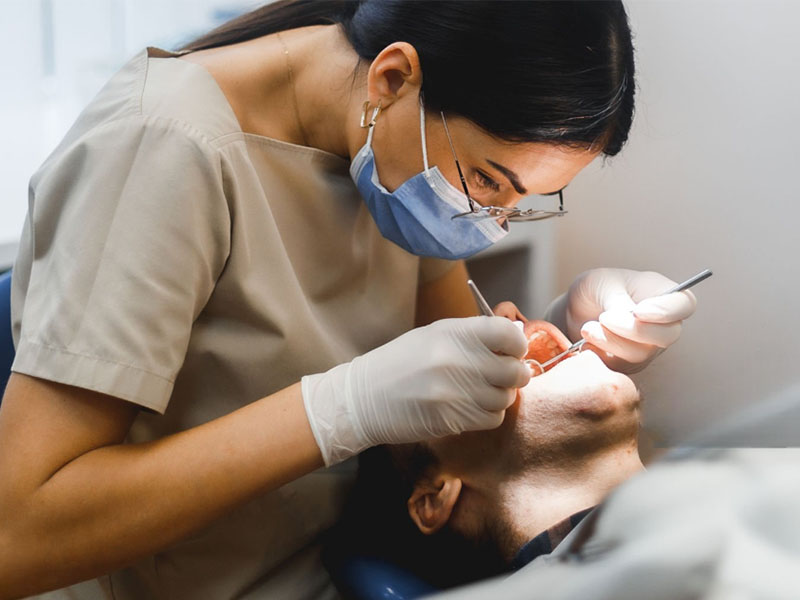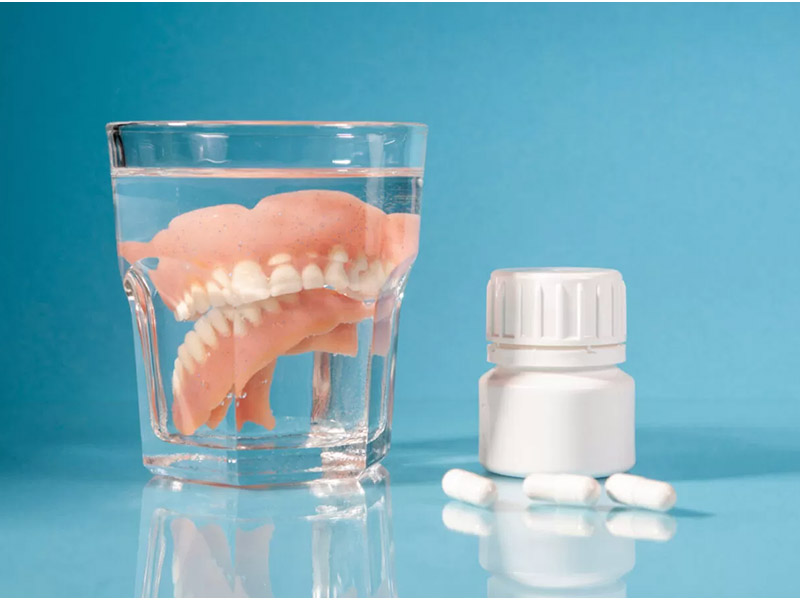
Complete Denture Care: A Step-by-Step Guide to Cleaning and Maintenance
Taking care of dentures can seem confusing, especially at the start. The first time I held my own set of dentures, questions flew through my head. What if I drop them? Can I just use toothpaste and a brush? Do I really have to soak them? After years of practice (and a bit of trial and error), plus help from my dentist, I’ve put together a simple denture care routine that keeps my dentures clean, my mouth comfy, and my gums healthy. Let me walk you through what actually works (and what’s just a waste of time), so you can feel sure about looking after your smile.
Table of Contents
The Simple Everyday Denture Care Routine
Taking care of dentures isn’t hard, but you do need to stick with it and know what you’re doing. I learned quickly that just guessing or skipping steps makes my mouth sore and my dentures wear out faster. Here’s the plain routine I follow every day:
Step 1: Rinse After Each Meal
Back when I’d just pop out my dentures at night and forget about them during the day, I had problems—food gets stuck, can make your breath smell, and even hurts your gums.
Why Rinse After Each Meal?
Whenever you eat, small pieces of food and plaque collect around and under your dentures. Leave those there and they start to build up, causing bacteria to grow and giving you bad breath, sore gums, or sometimes mouth infections. Research shows up to 70% of people with dentures get this sore, red gum problem at some point.
How I Do It:
• I take my dentures out gently—over a towel or a soft surface (trust me, if you drop them in a hard sink, you’ll be sad).
• I hold them under cool, plain water (not hot—hot water can bend them).
• A quick rinse knocks off most food bits and keeps my mouth much fresher between brushings.
Step 2: Brush Your Dentures Daily (Not with Toothpaste!)
At first, I thought regular toothpaste would work—but that stuff is gritty, almost like sand, which is very bad for dentures.
Why is Brushing Needed?
Brushing takes off stuff you can’t see, like plaque and stuck food, and helps stop stains. Every dentist says it’s the best way to keep both your dentures and your mouth healthy.
What I Use:
- A soft-bristle denture brush (so it doesn’t scratch my dentures).
- A non-abrasive denture cleaner or just gentle hand soap.
What Not To Use: - Skip regular toothpaste, whitening, and charcoal toothpastes—they’re much too rough.
- Don’t use hard brushes or scrub really hard. Scratches are perfect hiding places for germs and even fungus like thrush.
I make sure to brush every part: inside, outside, and around any clips for partial dentures. This habit keeps my dentures looking good and my breath from getting funky.
Step 3: Soak Dentures at Night
I’ll admit there were nights when I wanted to just put my dentures back in and forget about it. But soaking them is really important, for both my gums and my dentures.
Why Soak at Night?
- Dentures are made from a plastic material that can dry out and change shape if it’s not kept wet.
- Soaking kills germs and helps get rid of small bugs you can’t see, even after a good brushing.
- Most important, your gums need a break. Wearing dentures 24/7 almost always leads to sore spots.
How I Soak:
- I use a drop-in denture cleaning tablet in a glass of water, or even just regular cool water if I’m out of tablets.
- Never hot water, never bleach—it can mess up your denture’s color and can even break it.
Just don’t skip this step. If I do, my mouth and dentures both feel off in the morning.
Don’t Forget Your Mouth: Mouth Care for Denture Wearers
When I started, I thought cleaning the dentures was enough. But leaving your gums and tongue dirty leads to all kinds of problems. You need to clean your whole mouth, not just the dentures!
Cleaning Your Gums, Tongue, and The Roof of Your Mouth
Germs don’t just stick to your dentures—they love your gums and the roof of your mouth, too.
How I Keep My Mouth Healthy:
- I use a soft toothbrush or even a wet washcloth to gently clean my gums, the roof of my mouth, and my tongue in the morning and before bed.
- This takes away old plaque and helps my gums stay healthy.
- If I see any red spots, sores, or a white coating, I call my dentist. It can be the first sign of gum trouble or a little bit of thrush (mouth fungus).
Special Tips for Partial Denture Wearers
My mom has a partial denture and her dentist was very clear: look after your real teeth and the teeth that hold the denture clips just as well as the dentures themselves.
Tips I Gave My Mom:
- Brush her own teeth at least two times a day.
- Floss carefully around the parts where the partial touches her teeth.
- Take a quick look for food bits around the denture’s clips—those spots get problems first.
Even if you haven’t had trouble before, a good daily routine stops small problems before they start.

Quick Chart: Denture Care Do’s and Don’ts
Sometimes at the end of a long day, I forget what’s okay and what isn’t. So I made this chart and stuck it up inside my bathroom cabinet:
| DO | DON’T |
|---|---|
| Handle dentures over a towel or water-filled sink | Use hot water (it bends them) |
| Brush each day with a soft brush and denture cleaner | Brush with regular or “whitening” toothpaste |
| Soak at night in denture cleaner or cool water | Try to glue a broken denture at home (super glue is a no-no) |
| Clean your gums, tongue and roof of mouth every day | Wear dentures all day and night (let your gums rest) |
| Get dental check-ups every year | Use bleach or strong cleaners |
How to Deal With Usual Denture Problems
Even if you’re careful, some problems just show up. Here’s how I handle the most common ones before they become a big deal.
Stains and Color Changes
After coffee, red wine, or certain foods, my dentures can get stained. Tobacco and certain meals leave marks, too.
What Helps:
- Brushing every day and soaking at night works for most of it. For really tough stains, I ask my dentist for help.
- I stay away from whitening toothpastes or odd cleaning mixes. They scratch and dull the denture.
- If stains keep coming back, I cut back on the food or drink causing them—or just rinse my mouth right after.
Bad Breath
Nobody wants to have bad breath. When I get lazy with cleaning, food and bacteria can build up—especially on the bottom side of the denture.
How I Fix It:
- Sticking to my full daily cleaning keeps it under control.
- If my breath still stinks, I clean my denture case and try a different denture cleaner.
- If I still have a problem, I check with my dentist. Sometimes it means there’s an infection.
Loose Fit or Sore Spots
Our mouths change over time, and even well-made dentures don’t always fit the same forever. As we get older, our gums and jaw can shrink, making dentures feel loose or rub in new spots.
Things I Watch For:
- Clicking noises, slipping dentures, red sore spots, or spots that hurt my gums.
- I don’t ever try to fix my dentures at home with sharp things. That only makes it worse.
- When fitting feels off, I call my dentist for an adjustment.
When to Go to Your Dentist or Denture Specialist
Dental trouble can sneak up on you, so I never wait too long when I notice a problem. Fixing things early saves pain and money. I call my dentist when:
- My dentures start to feel loose, slip, or make weird clicking sounds.
- There’s a chip, crack, or a loose tooth on the denture.
- I notice red spots, sores, or find blood in my mouth.
- My breath smells even after a good clean.
- My yearly appointment comes around—my mouth and dentures get checked, and I get an oral cancer check (dentures don’t protect from that).
Denture Care FAQs
Can I clean my dentures with vinegar or baking soda?
I’ve tried both. Baking soda is a bit too rough and can scratch your dentures. Vinegar can help with hard-to-remove gunk but can hurt the metal parts of partial dentures, so use it carefully and always rinse a lot. Mostly, I stick to cleaners made for dentures.
How often should I get new dentures?
Dentists usually say every five to ten years. I start to notice mine feel different (or a bit loose) by seven years. If your gums hurt or your bite feels strange, it might be time.
Can I sleep with my dentures in?
I used to, but it’s better to let your gums rest at night. Sleeping with dentures all the time leads to sores and infections.
What’s the white stuff on my dentures?
That’s plaque, just like on real teeth. Sometimes it’s a mix of germs and fungus (thrush). That’s why cleaning every day (and seeing your dentist if it keeps happening) is important.
The Numbers: Why Looking After Your Dentures Matters
When I saw these numbers, it really made me take cleaning seriously:
- Sore red gums from dirty dentures happen to 15 to 70% of people with dentures. It’s usually from germs and mouth fungus.
- Ordinary toothpaste is ten times rougher than denture cleaners—and can quickly scratch and ruin dentures.
- Don’t soak? You risk the plastic drying out, bending, and growing even more germs.
- Dentures need adjusting every year or two, and a full replacement every 5-10 years, because your mouth changes over time.
- For older folks, dirty dentures don’t just hurt your mouth—they can make you sicker, like causing a lung problem called pneumonia.
All these facts are right from places like the American Dental Association and health websites. It only takes a few minutes a day to avoid all these problems.
Conclusion
If you’ve read all the way through—well done. Looking after dentures might feel tricky at first. But with practice, it’s no big deal. What have I learned? Just remember three rules: Brush every day. Soak every night. Give your gums a break.
Stick to those, and you’ll have fresh breath, a comfy fit, and know you’re taking care of yourself. Small daily steps save you from bigger troubles later. And if you’re ever unsure or something feels wrong, give your dental expert a call. Because everyone deserves a smile they feel good about—every single day.



